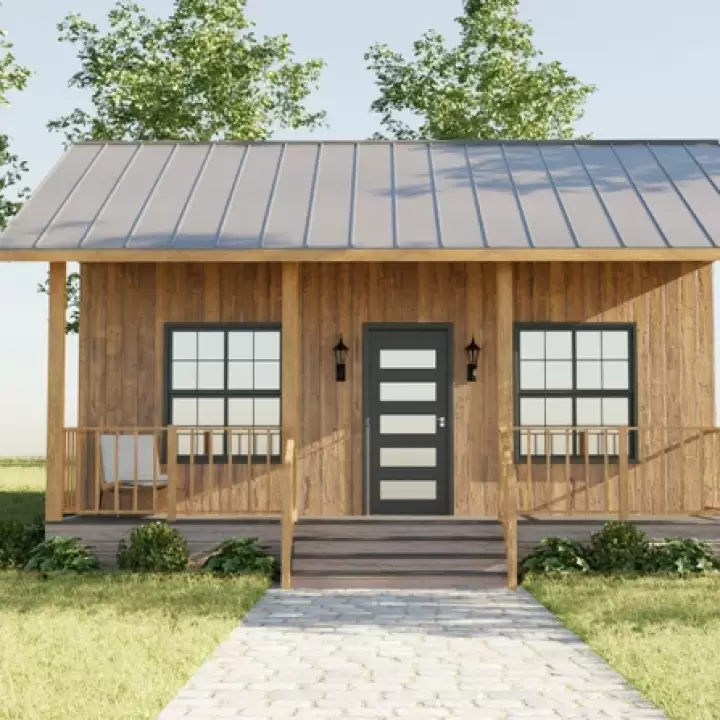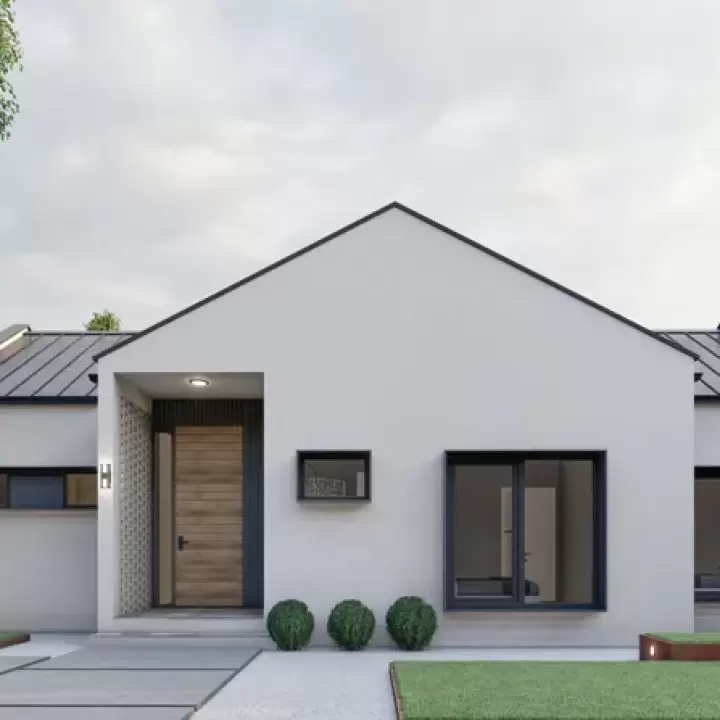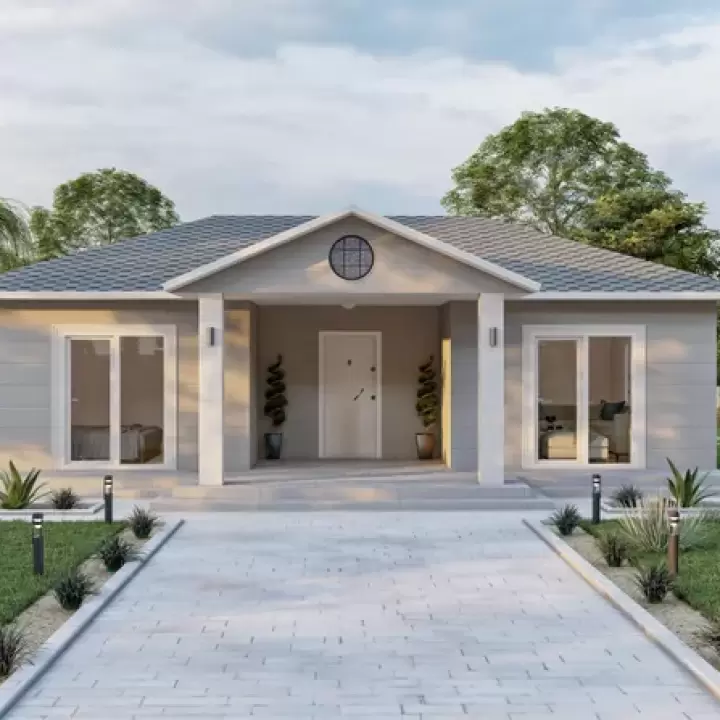
Charming Tiny A-Frame Blueprints for Cozy Living
A-Frame cabins are renowned for their unique design, combining simplicity with functionality. The charming nature of tiny A-Frame blueprints makes them an appealing choice for those looking to create a cozy and efficient living space. This article explores the benefits of tiny A-Frame cabins, highlights popular design elements, and provides tips for making the most out of your small space.
The Appeal of Tiny A-Frame Cabins
Tiny A-Frame cabins are celebrated for their distinctive triangular shape and space-efficient design. These cabins are not only visually striking but also offer practical benefits that make them an ideal choice for a variety of lifestyles.
1. Unique Design and Aesthetic
The A-Frame design stands out due to its sloped roof and open floor plan. This design maximizes the use of vertical space, creating an airy and spacious feel despite the small footprint. The sharp angles and clean lines of the A-Frame give it a modern yet timeless appeal, fitting seamlessly into both rural and urban settings.
2. Efficient Use of Space
One of the most significant advantages of tiny A-Frame cabins is their efficient use of space. The design allows for a compact yet functional layout, often incorporating multi-purpose furniture and clever storage solutions. This efficiency is perfect for those who prioritize minimalism and practicality.
3. Cost-Effective Living
Building a tiny A-Frame cabin can be a more affordable option compared to larger homes. The reduced square footage translates to lower construction costs, reduced utility bills, and less maintenance. For those looking to downsize or invest in a vacation home, a tiny A-Frame cabin offers an economical choice without sacrificing style.
Popular Tiny A-Frame Blueprint Designs
When considering a tiny A-Frame cabin, various design elements can enhance its charm and functionality. Here are some popular blueprint designs that maximize the cozy and efficient nature of these cabins:
1. The Classic A-Frame
The classic A-Frame blueprint features a symmetrical triangular shape with a steeply pitched roof. This design often includes a central living area with large windows to capture natural light and views. The compact size of the cabin is ideal for a single bedroom or a loft area, making it perfect for small families or couples.
2. The Modern A-Frame
For those seeking a contemporary twist, the modern A-Frame design incorporates sleek lines and minimalistic features. Large glass panels and open-plan interiors characterize this design, providing a sense of openness and connection with the outdoors. The modern A-Frame often includes eco-friendly materials and innovative technologies, aligning with sustainable living practices.
3. The Rustic A-Frame
The rustic A-Frame blueprint emphasizes natural materials and a cozy, homey atmosphere. Wooden finishes, stone accents, and traditional design elements create a warm and inviting space. This design is perfect for those who appreciate a cabin's classic charm and want to create a retreat that blends harmoniously with its natural surroundings.
Tips for Designing and Building Your Tiny A-Frame Cabin
Creating a tiny A-Frame cabin requires careful planning and consideration. Here are some tips to help you design and build a cabin that meets your needs and exceeds your expectations:
1. Prioritize Functionality
In a small space, functionality is key. Focus on designing a layout that makes the most of every square inch. Consider multi-purpose furniture, built-in storage, and efficient use of vertical space to maximize the cabin's usability.
2. Embrace Natural Light
Large windows and skylights can make a small space feel more expansive. Embrace natural light to create an open and airy atmosphere. Additionally, incorporating outdoor living areas, such as decks or patios, can extend your living space and enhance the connection with nature.
3. Choose Quality Materials
Selecting high-quality materials ensures durability and enhances the aesthetic appeal of your cabin. Opt for materials that complement the A-Frame design and contribute to a cohesive look. Sustainable and eco-friendly materials can also align with the modern A-Frame's principles.
4. Plan for Future Needs
Consider your long-term needs when designing your cabin. Whether you plan to use it as a vacation home, a full-time residence, or a rental property, ensure the design accommodates potential changes. Flexible spaces and adaptable features can provide versatility and longevity.
5. Work with Professionals
Engage with architects, designers, and builders who specialize in A-Frame cabins to ensure your project is executed flawlessly. Their expertise can help you navigate design challenges and bring your vision to life.
Frequently Asked Questions (FAQ)
1. What are the benefits of living in a tiny A-Frame cabin?
Tiny A-Frame cabins offer numerous benefits, including cost savings, efficient use of space, and a unique aesthetic. They are ideal for minimalist living, reducing maintenance and utility costs while providing a cozy and functional living environment.
2. How much does it cost to build a tiny A-Frame cabin?
The cost of building a tiny A-Frame cabin varies depending on factors such as size, materials, and location. On average, costs can range from $20,000 to $100,000. Working with a contractor and establishing a budget can help you manage expenses effectively.
3. Can I customize a tiny A-Frame blueprint?
Yes, tiny A-Frame blueprints can be customized to suit your preferences and needs. Many design firms offer customization options, allowing you to adjust the layout, materials, and features to create a cabin that reflects your personal style.
4. What are some popular interior design ideas for tiny A-Frame cabins?
Popular interior design ideas for tiny A-Frame cabins include incorporating multi-purpose furniture, utilizing built-in storage solutions, and embracing natural light. Warm, natural materials such as wood and stone can enhance the cabin's cozy and inviting atmosphere.
5. Are tiny A-Frame cabins suitable for year-round living?
Tiny A-Frame cabins can be suitable for year-round living with proper insulation and heating. Many designs incorporate features to ensure comfort in various climates. It is essential to plan for seasonal weather conditions and choose materials and systems that provide adequate protection.
 English
English  Español
Español  Français
Français  Português
Português  Italiano
Italiano  Русский
Русский  日本語
日本語  中文 (中国)
中文 (中国) 




